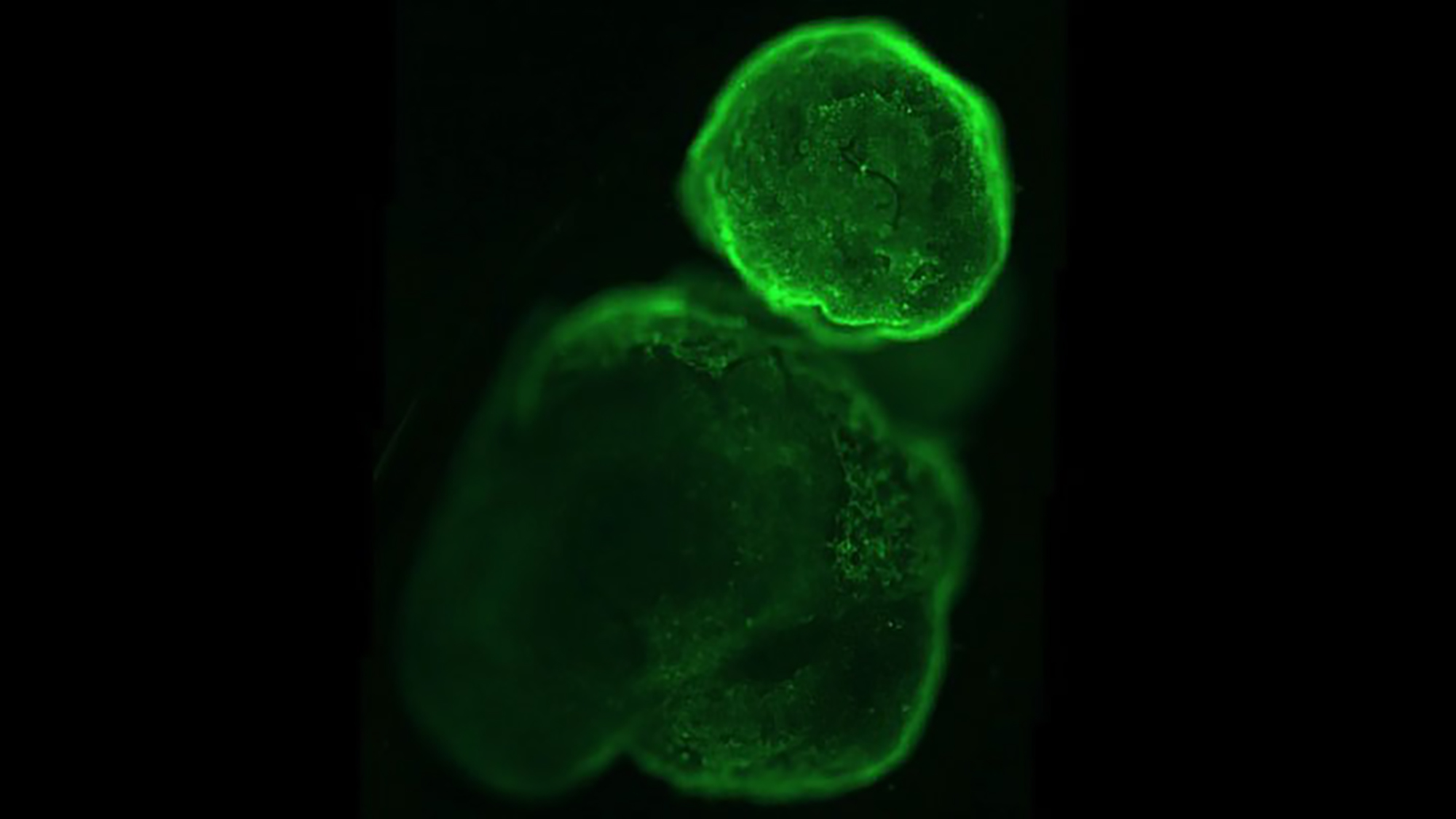The Institute for Evolutionary Biology (IBE: CSIC-UPF) has joined forces with IrsiCaixa in a recent project to develop human lung and brain organoids, i.e. mini-organs generated in the laboratory from stem cells, to study how SARS-CoV-2 infection affects our body.
These millimeter-sized organoids are a very good model for human research and are postulated as an alternative model to animals. In addition, the infection will be performed with viruses obtained directly from patients and not attenuated or artificial, so the study will simulate the infection in the most realistic way possible.
“We will use microscopic photographs of the organoids to monitor the evolution of the infection using an Artificial Intelligence algorithm […] and we will be able to quickly assess which drugs are working best”
Sandra Acosta, researcher in charge of the IBE project.
Thus, the project will allow to thoroughly investigate the effect of COVID-19 on the human body and help to assess the effectiveness of different drugs in biological environments as realistic as possible.






